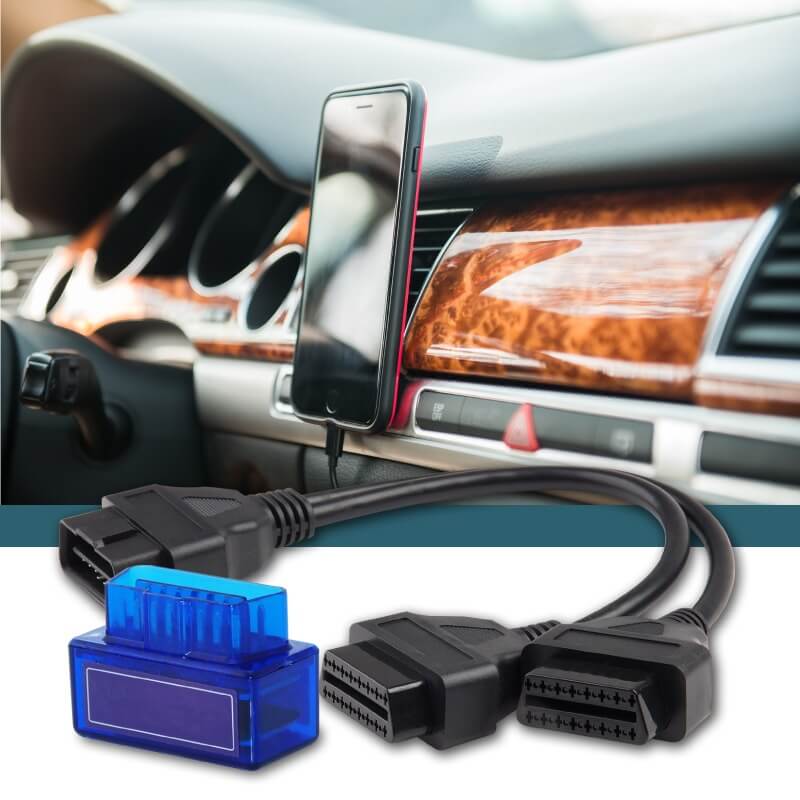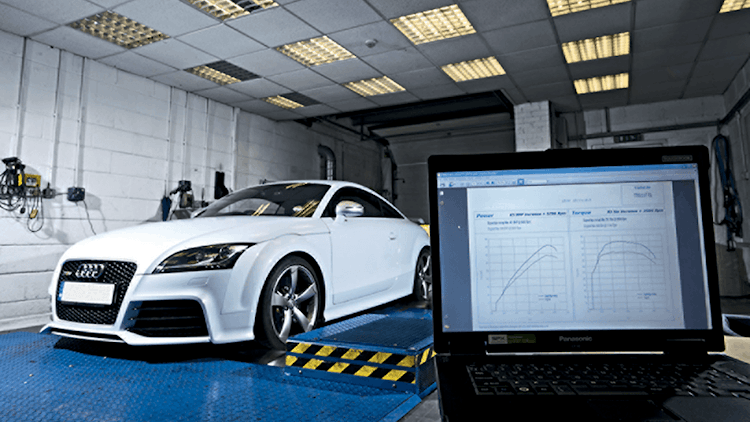Table of Contents
ToggleWhat are Car Performance Chips?
A car performance chip, also known as an ECU (Engine Control Unit) chip, performance tuner, or chip tuning, is a device designed to modify and optimize the vehicle’s engine control unit. The ECU is the brain of the vehicle’s engine, responsible for regulating various parameters, such as fuel injection timing, ignition timing, air-fuel ratio, and more.
Performance chips reprogram or “tune” the ECU to adjust the engine’s performance parameters in a way that increases its overall efficiency and power output. These chips work by altering the way the engine operates to achieve more horsepower, torque, and better fuel efficiency—depending on the goals of the car owner.
How Do Performance Chips Work?
The engine control unit (ECU) of a car is responsible for managing the engine’s settings to ensure optimal performance under various conditions. A performance chip interacts with the ECU and modifies certain parameters, such as:
- Fuel-to-air ratio
- Ignition timing
- Boost levels (in turbocharged engines)
- Throttle response
- Rev limits
By adjusting these parameters, performance chips can significantly enhance the engine’s power output or fuel economy. The chip’s calibration allows the engine to operate more efficiently, taking advantage of the full potential of the vehicle’s components.
Performance chips can either reprogram the ECU directly or install a plug-and-play chip that modifies the ECU settings without the need for permanent changes to the car’s computer system. Depending on the chip’s design, it can either offer a subtle improvement or a dramatic boost in power.
Types of Performance Chips
There are several types of performance chips available, each designed for different levels of modification. Here’s a look at the most common types of performance chips:
1. Tuning Chips
Tuning chips are the most common type of performance chips and are specifically designed to modify the engine’s ECU to achieve better performance. These chips can be programmed to increase horsepower, optimize throttle response, and improve fuel efficiency.
- How it works: Tuning chips adjust the vehicle’s ECU programming to change settings like ignition timing, boost pressure, and air-fuel ratios. By doing this, they allow the engine to run more efficiently and with increased power output.
- Ideal for: Drivers looking for a noticeable improvement in engine power and performance without replacing major components.
2. Piggyback ECU Chips
Piggyback ECU chips are designed to work alongside the factory ECU, modifying the input/output signals between the sensors and the ECU. They can provide additional tuning options without completely overriding the factory settings.
- How it works: Piggyback chips intercept the signals from the sensors and modify them before sending them to the ECU. This allows for fine-tuning of specific engine parameters to improve performance.
- Ideal for: Car owners who want more customization and flexibility with their performance settings, without fully replacing the ECU.
3. Standalone ECU Chips
A standalone ECU is a complete replacement of the factory ECU, offering total control over the vehicle’s engine management. These chips are typically used by enthusiasts who have heavily modified their vehicles and need a more advanced system to handle the performance upgrades.
- How it works: A standalone ECU completely replaces the factory ECU and offers comprehensive control over the engine’s parameters. This option is typically for high-performance vehicles with significant upgrades, such as forced induction (turbocharging or supercharging) or large changes to the exhaust system.
- Ideal for: Advanced tuners and performance enthusiasts with modified engines who want full control over their vehicle’s parameters.
4. OBD-II Performance Chips
On-Board Diagnostics (OBD-II) performance chips plug into the car’s OBD-II port (which is located under the dashboard) and allow users to access the vehicle’s ECU data. These chips offer the ability to reprogram various engine settings or monitor real-time data on performance.
- How it works: OBD-II performance chips are easy to install and use, often offering plug-and-play functionality. They allow drivers to make adjustments to the vehicle’s ECU using software on a smartphone, tablet, or laptop.
- Ideal for: Drivers who want an easy, non-invasive way to enhance their car’s performance or monitor various engine parameters.
Benefits of Car Performance Chips
squeelee. com/ offer a wide range of benefits, especially for those looking to enhance their vehicle’s performance. Here are the key advantages:
1. Increased Horsepower and Torque
The primary reason most car owners install performance chips is to increase horsepower and torque. By optimizing fuel management and ignition timing, performance chips can unlock hidden power in the engine, allowing for faster acceleration and a more responsive driving experience.
2. Improved Fuel Efficiency
Performance chips can also help improve fuel economy by optimizing the air-fuel ratio, reducing fuel wastage, and improving engine efficiency. This can be particularly beneficial for drivers looking to increase fuel economy without compromising performance.
3. Enhanced Throttle Response
One of the most noticeable improvements that come with performance chips is enhanced throttle response. The car will feel more responsive when the accelerator is pressed, providing a more enjoyable and dynamic driving experience.
4. Better Tuning for Modified Vehicles
If you’ve made significant modifications to your vehicle, such as installing a cold air intake, aftermarket exhaust, or turbocharger, a performance chip can help optimize the ECU to work in harmony with these upgrades. This ensures that the vehicle is running at its best and efficiently utilizing the modified components.
5. Easy Installation
In most cases, performance chips are easy to install, and some require no permanent changes to the car. Plug-and-play options, such as OBD-II chips and tuning modules, are designed to be installed without the need for specialized knowledge or tools.
Risks and Considerations of Using Performance Chips
While performance chips offer significant benefits, there are also potential risks and considerations to keep in mind:
1. Potential Warranty Issues
Installing a performance chip could void your vehicle’s warranty, particularly if it involves reprogramming the ECU or replacing the factory ECU with a standalone unit. Be sure to check the terms of your warranty before making any modifications.
2. Overheating and Engine Stress
Over-tuning your engine can lead to overheating, excessive wear, and additional strain on your car’s components. If you push your engine too hard without making necessary upgrades to cooling systems or other related components, it could lead to engine damage or decreased lifespan.
3. Emissions Compliance
Performance chips may alter the engine’s emissions characteristics, potentially causing your vehicle to fail emissions tests or become non-compliant with local regulations. Before installing a performance chip, it’s essential to verify that it complies with local emissions laws, particularly if you live in regions with strict environmental regulations.
4. Potential for Poor Fuel Economy
While some performance chips can improve fuel efficiency, others may have the opposite effect if they are not programmed or tuned properly. It’s important to choose a reputable brand and product and to ensure proper tuning to avoid unexpected increases in fuel consumption.
Conclusion: Is a Performance Chip Right for You?
Car performance chips are a great way to enhance the power, efficiency, and overall driving experience of your vehicle. Whether you want more horsepower, better fuel economy, or enhanced throttle response, a performance chip can help achieve your goals. However, it’s important to understand the types of chips available, the benefits they offer, and the potential risks involved.
If you’re considering installing a performance chip, it’s essential to choose the right chip for your needs and to ensure that it’s installed correctly. Additionally, remember to consider the potential impact on your vehicle’s warranty, emissions compliance, and long-term engine health.
With the right chip and proper installation, you can unlock the full potential of your vehicle and enjoy a more dynamic and powerful driving experience.





